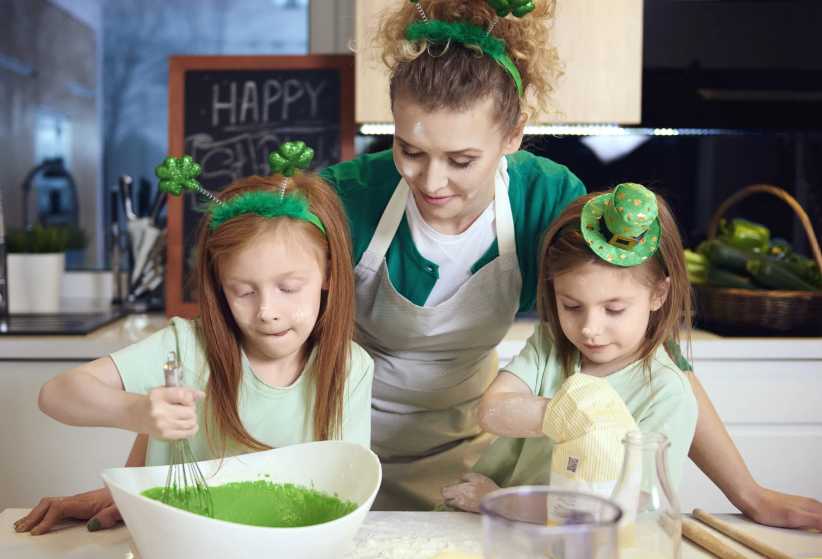Children who participate in sports programs can maximize their potential physically, mentally, emotionally, and socially. But it doesn’t just happen. Although good coaching and league administration are important, nothing can replace knowledgeable, interested, and supportive parents. So how can moms and dads make the most of their athletic endeavors? Here are 10 tips:
Recognize game rules. The more you know about the sport your child is playing, the calmer and more at ease you will be. Some rules for a given sport may have been modified due to age and developmental level. So when you sit on the sidelines, it will help you know why a call was or wasn’t made.
Assess developmental milestones. Be aware of the developmental milestones for the activity, so you can ascertain if your child is physically and mentally ready to take on the sport (see below).
Assist with goal setting. Help your child set realistic goals for himself. Just make sure they are goals he can own for himself. The more personal goals he sets and achieves, the more successful he will be and the more fun he will have.
Collaborate with the coach. Coaches may be a good source for providing drill pointers, but collaborating with them has even greater value. Know who’s coaching your kids and make sure he is in a safe environment and is being instructed in appropriate ways — that the coaches aren’t too tough on him and are giving lots of positive reinforcement.
Volunteer to help. One of the best ways to know your child’s coaches is to volunteer. Ask if the team needs an assistant coach or administrator, offer to spearhead a fund-raising event, or sign up to bring snacks for the kids after the game. Or volunteer to be the team journalist. Bring your camera and take pictures of the kids at practices and games. Then create an online photo album for the entire team. This can encourage communication and unity among team members, their families, and coaches.
Communicate a life lesson. Communication is a key role in sports parenting, especially when it comes to talking with your children about life lessons such as winning well, dealing with defeat, cooperation, perseverance and the like. For example, talk about how players have to work together to protect the goal, and how it’s important to pass the ball, particularly if another player is near the goal. Also, discuss the need to be patient with everyone, because we all make mistakes.
Listen up. Listen to your child’s frustrations and excitements. Sometimes he doesn’t want you to solve his problem, he just needs you to listen.
Maintain proper nutrition. For children who are involved in rigorous athletics, it is particularly important to have proper nutrition and hydration. An appropriate diet includes getting adequate complex carbohydrates, a lean protein source, and plenty of fruits and vegetables. During dinner, your child’s plate should have 50 percent fruits and vegetables, 25 percent whole grains, and 25 percent protein. Think ahead on how you can provide healthy food options in the car. Also, make sure your child is staying hydrated. If the team isn’t taking a water break during practice, speak up.
Live it out. Be a good role model for your kids, so your words and actions align. Workout on a regular basis and eat healthy, and encourage your kids to do the same. When you are in the stands, keep a positive attitude and cheer everyone on, even the other team if it has made a good play.
Be a good cheerleader. Make it to as many games and practices as you can, offer encouragement and support, and look for little ways to let your child know you are his greatest fan. After weekend game days, do something special — get a bite to eat, take in a movie, or go swimming. In everything, let him know you are his biggest fan.
Developmental milestones for children in sports
Preschool. Many children at this age are beginning to get involved in organized sports. To see if your child is ready, assess his basic skills such as running, throwing, and tracking objects in motion. Also consider his attention span. Is he focused enough to learn from group instruction? Most children aren’t ready to participate in organized sports until they are around 4 or 5. Even then, practices should be short and allow time for free play. Programs should focus on the fundamentals of skill development and emphasize fun over competition.
Early elementary. By now, most children have had at least one experience with an organized sport. The emphasis should continue to be on skill development and having fun, not on competition. This is a good time to analyze what you want your child to get out of sports participation. Ask him and he will more than likely say to have fun, be with his friends, and learn a new skill. Make sure this philosophy lines up with your child’s coach and league’s instruction. Let him sample different sports activities until he finds one he truly enjoys.
Late elementary. At this age, children are beginning to get a grip on coordination and have a better concept of team effort. This is also a time when relative age factor comes into play and those who mature physically and mentally may seem to have an advantage. If not handled properly, it may put extra pressure on the mature child to perform, which could lead to burnout.
Children who mature later may have to work harder on skill development and may not initially get their coaches’ attention, but given time and encouragement they often catch up with their counterparts. Because children mature at different rates, it is important to continue to emphasize the process, not the results, and to praise effort instead of outcome. This is especially important as competition elevates. Look for programs that adhere to this philosophy and make sure the entire team has an opportunity to participate in play, regardless of skill level.
Middle school. This is a time when children are beginning to master skills and techniques. This can also be a time when league politics, controlling parents, and abusive coaches may dominate an activity, though it happens earlier. If the child feels as if he has lost control over his activity or is being pressured by others, he may be in danger of burnout.
Kids at this age are better able to understand and handle the pressure of competition, but performance and self-esteem issues are closely tied now and can affect how youth feel about themselves in other facets of life. They may also need encouragement and information to deal with the awkwardness of changing bodies and minds.
Resources for parents
Books:
“Home Team Advantage: The Critical Role of Mothers in Youth Sports” by Brooke de Lenche
“How to Win at Sports Parenting: Maximizing the Sports Experience for you and your Child” by Jim and Janet Sundberg
“101 Ways to be a Terrific Sports Parent: Making Athletics a Positive Experience for Your Child” by Joel Fish and Susan Magee
Websites: www.sportsparenting.org, www.momsteam.com, www.nays.org
Denise Yearian is the former editor of two parenting magazines and the mother of three children.





















